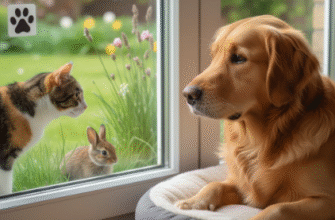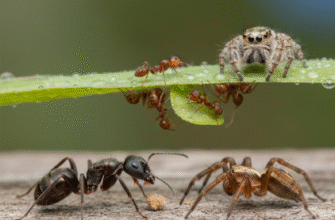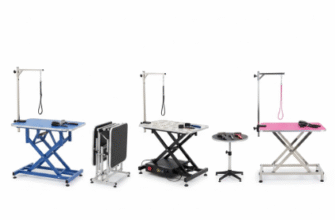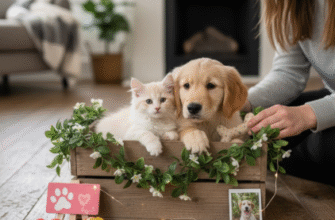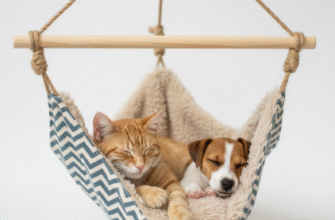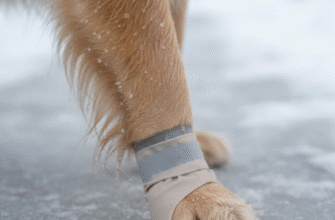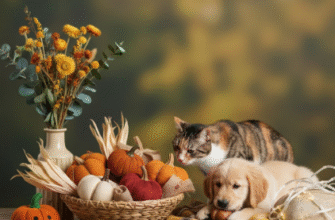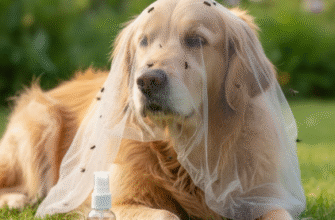The smell of charcoal, sizzling meat, and sunshine – backyard barbecues are a cherished ritual. Friends, family, and fun fill the air. Often joining the festivities are our beloved furry companions, drawn by the enticing aromas and the happy atmosphere. While sharing these moments is wonderful, sharing the food can be incredibly dangerous for our dogs and cats. Many popular BBQ staples pose serious health risks to pets, turning a fun gathering into a potential emergency. Understanding these dangers is the first step to ensuring everyone, including your four-legged family members, enjoys the cookout safely.
It’s tempting, isn’t it? Those pleading eyes watching every bite you take. A little piece of burger won’t hurt, right? Unfortunately, it often can. Human food, especially the rich, fatty, and seasoned items common at barbecues, doesn’t align with a pet’s dietary needs or digestive capabilities. What seems like a harmless treat can lead to upset stomachs, severe illness, or even worse.
Top BBQ Food Dangers for Your Pet
Awareness is key. Let’s break down some of the most common culprits lurking on the picnic table and grill that you absolutely must keep away from your pets.
Cooked Bones: A Splintering Hazard
It seems natural – dogs love bones! But cooked bones are a major no-no. Unlike raw bones (which also carry risks and should only be given under specific circumstances and supervision), cooked bones become brittle. They can easily splinter when chewed, creating sharp shards. These shards can cause:
- Choking
- Damage to the mouth and tongue
- Obstruction in the throat or esophagus
- Perforation of the stomach or intestines
- Severe constipation or blockage
This applies to all cooked bones – ribs, chicken wings, T-bones, you name it. Resist the urge to toss Fido that leftover bone; it’s simply not worth the potentially catastrophic risk. Ensure discarded bones are placed immediately into a secure trash container well out of reach.
Fatty Foods and Trimmings: Pancreatitis Alert
That juicy steak fat, the crispy chicken skin, the greasy burger bits – these are prime triggers for a painful and potentially life-threatening condition called pancreatitis. The pancreas, an organ responsible for producing digestive enzymes, can become inflamed when overloaded with high-fat foods. Symptoms include vomiting, diarrhea, abdominal pain, lethargy, and loss of appetite. Even a small amount of unusually rich, fatty food can set off an attack in susceptible pets. Keep all fatty scraps, greasy drippings, and meat skin away from your pets.
Onions, Garlic, Chives, and Leeks: Toxic Alliums
Members of the Allium family are staples in BBQ cooking, adding flavor to marinades, rubs, sauces, salads (like potato or pasta salad), and burger patties. However, they are toxic to both dogs and cats. These plants contain compounds that can damage red blood cells, leading to anemia. Garlic is considered more potent than onion. The toxicity applies whether they are raw, cooked, powdered, or dehydrated. Since they are often hidden ingredients, it’s safest to assume most seasoned human food at a BBQ is off-limits.
Corn on the Cob: More Than Just Corn
While corn itself, in small amounts, isn’t typically toxic, the cob is a significant danger. Pets, especially dogs, might swallow large chunks or even the entire cob. It’s indigestible and perfectly sized to cause a serious intestinal blockage, often requiring emergency surgery to remove. If you enjoy corn on the cob, make sure the cobs are disposed of carefully and immediately in a pet-proof bin.
Skewers and Toothpicks: Puncture Risks
Kebabs are a BBQ favorite, but the wooden or metal skewers holding them together present a serious physical hazard. If ingested, they can cause severe internal damage, puncturing the esophagus, stomach, or intestines. Even small toothpicks used for appetizers can cause similar harm. Pets might grab a dropped kebab or raid the trash, making careful cleanup and disposal essential.
Alcoholic Beverages: Zero Tolerance
This might seem obvious, but unattended drinks can be lapped up by curious pets. Alcohol affects pets much more severely and rapidly than humans due to their smaller size and different metabolism. Even small amounts can cause alcohol poisoning, leading to vomiting, diarrhea, coordination problems, difficulty breathing, tremors, central nervous system depression, coma, and potentially death. Keep all alcoholic drinks well out of reach.
Salty Snacks: Trouble in a Bag
Bowls of chips, pretzels, and other salty snacks are common at gatherings. While a single dropped chip isn’t usually cause for panic, excessive salt intake can lead to sodium ion poisoning. Symptoms include extreme thirst, frequent urination, vomiting, diarrhea, lethargy, tremors, seizures, and kidney damage. Ensure these snacks are kept away from easy pet access.
Dangerous Desserts: Sweet Threats
Dessert time holds dangers too. The biggest threats include:
- Chocolate: Contains theobromine and caffeine, both toxic to pets. Darker chocolate is more dangerous.
- Xylitol: A common artificial sweetener found in sugar-free baked goods, candies, and even some peanut butters. It is extremely toxic to dogs, causing a rapid drop in blood sugar and potential liver failure.
- Grapes and Raisins: Often found in fruit salads or baked goods, these are highly toxic to dogs and can cause acute kidney failure.
Always keep desserts securely away from pets and be mindful of ingredients if considering sharing any ‘plain’ items.
Avocado Alert: Persin Problems
Guacamole is a BBQ staple, but avocado contains a substance called Persin. While most dangerous to birds and large animals, it can still cause stomach upset, vomiting, and diarrhea in dogs and cats. The pit also poses a significant choking and obstruction hazard.
Raw Meat Risks: Bacteria Worries
While preparing food, raw meat might drop or be left accessible. Raw meat can contain harmful bacteria like Salmonella and E. coli, which can cause severe gastrointestinal illness in pets, just as they can in humans. Avoid letting pets lick up drippings or snatch dropped pieces of uncooked meat or poultry.
Backyard barbecues are packed with potential hazards for curious pets. Many common foods, including cooked bones, fatty meats, onions, garlic, corn cobs, and items containing xylitol or chocolate, can cause serious health problems ranging from digestive upset to life-threatening emergencies. Vigilance is crucial; never leave food unattended and ensure all scraps and waste are secured immediately.
Beyond the Plate: Other BBQ Hazards
Food isn’t the only danger lurking at a cookout. Keep these environmental risks in mind too:
The Hot Grill
A hot grill poses an obvious burn risk. Curious noses or paws can suffer severe burns from touching hot surfaces, coals, or even hot grease splatters. Keep pets safely away from the grill area at all times, even after cooking is finished, as it takes time to cool down.
Lighter Fluid and Charcoal
Lighter fluid is irritating to the skin and can cause severe gastrointestinal upset or respiratory problems if ingested. Charcoal briquettes, especially those with accelerants, can cause stomach upset, and large ingested pieces could pose an obstruction risk. Store these supplies securely away from pets.
The Tempting Trash Can
The barbecue aftermath – plates laden with bones, cobs, fatty scraps, wrappers, skewers, and napkins – smells irresistible to a pet. An unsecured trash can is a treasure trove of hazards. Ensure your trash bins have secure lids and are kept where pets absolutely cannot access them.
Keeping Your Pet Safe During BBQ Season
Prevention is always the best approach. Here’s how to ensure a safe experience:
Provide Safe Alternatives
Don’t let your pet feel left out! Have pet-safe treats on hand. Small pieces of plain, cooked lean meat (no bones, skin, or seasoning), certain plain vegetables like carrots or green beans (in moderation), or their favorite dog biscuits can make them feel part of the fun without the risk.
Secure Your Pet
Consider keeping your pet indoors or in a safely enclosed area (like a gated deck or on a leash) away from the main cooking and eating zones, especially during peak times. This prevents accidental ingestion of dropped food or access to the grill and trash.
Inform Your Guests
Politely ask your guests not to feed your pet any table scraps, no matter how much they beg. Guests may not be aware of the dangers certain foods pose. A gentle reminder can prevent a well-intentioned mistake.
Supervise and Secure
Constant supervision is ideal, but if that’s not possible, ensure pets are secured. Diligent cleanup is vital. Immediately dispose of plates, bones, cobs, skewers, and other waste in a pet-proof container.
If the Worst Happens
Accidents can occur despite our best efforts. If you suspect your pet has ingested something harmful – a cooked bone, fatty scraps, onions, chocolate, xylitol, or is showing signs of distress like vomiting, diarrhea, lethargy, difficulty breathing, or abdominal pain – contact your veterinarian or an emergency animal clinic immediately. Don’t wait to see how things develop; prompt action is crucial. Have the contact information readily available.
Barbecues are about enjoyment and togetherness. By understanding the potential food hazards and taking simple precautions, you can ensure these gatherings remain happy and safe occasions for every member of your family, including the furry ones wagging their tails nearby. Keep their health in mind, resist those puppy-dog eyes when it comes to dangerous human food, and focus on sharing the fun, not the feast.

